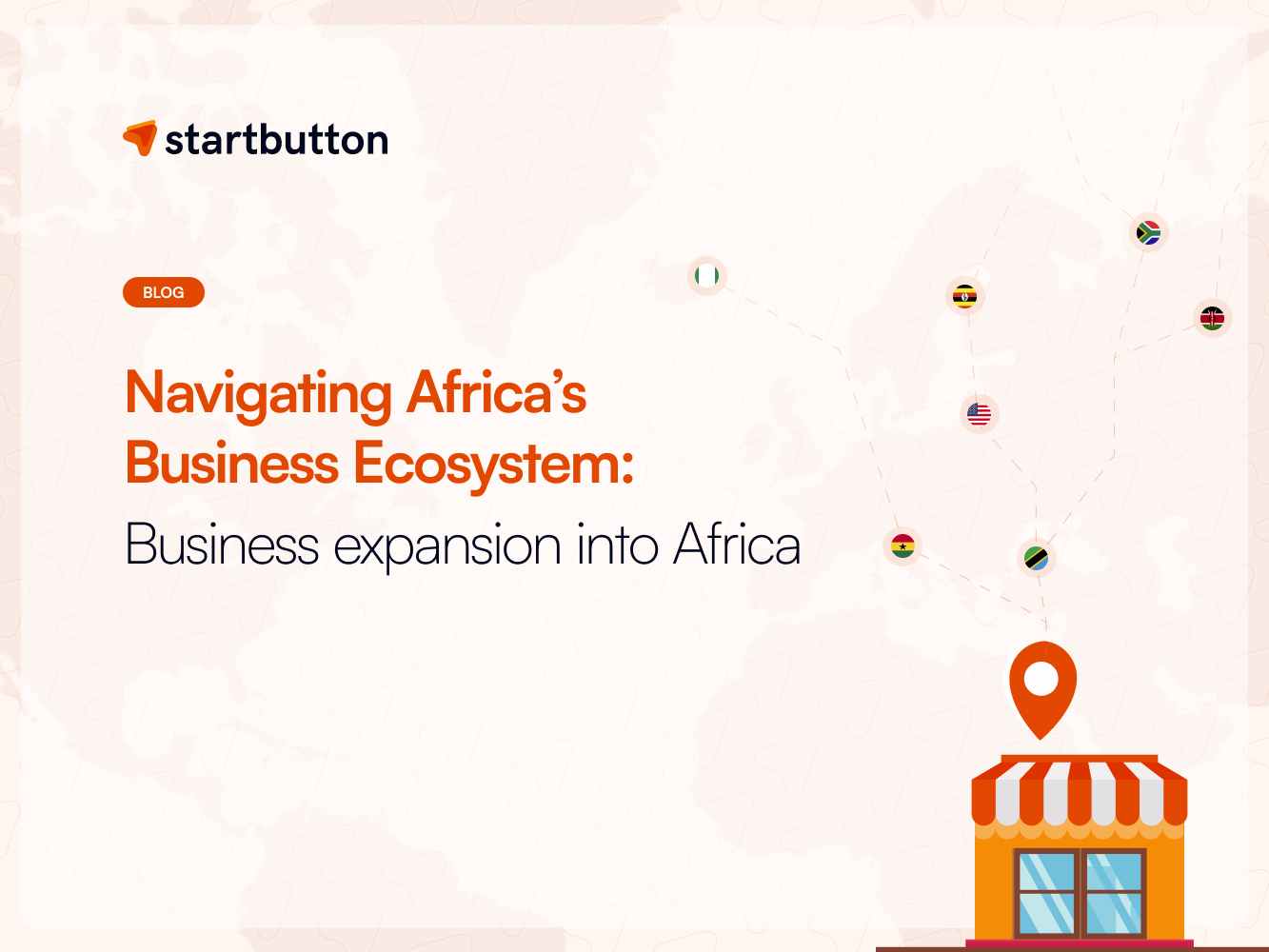Africa has the second fastest-growing economy in the world, next to Asia. With such ripe market potential, Africa has become an object of global attention, attracting investments worldwide. The continent’s youthful and rapidly growing population creates a vibrant consumer base brimming with potential. This, combined with strong economic growth across various sectors, makes business expansion into Africa a priority for many.
However, navigating Africa’s unique business landscape requires an in-depth understanding of the nuances of the African market. Efficient cross-border payment solutions and knowledge of diverse business regulations are crucial for successful business expansion into Africa.
Understanding the payment landscape in Africa

The payment landscape in Africa is different compared to other continents. Mobile money, a type of alternative payment method, is widely used in African countries, unlike in Europe and North America. Payment preferences and practices also vary depending on the specific African region targeted. Here are some factors to consider in your business expansion efforts into Africa:
Unified Currency vs. Currency Diversity
For businesses expanding into Africa from continents like Europe, where there is a unified currency like the Euro (€), it is important to note that most African countries have not adopted a unified currency. The Euro (€) streamlines financial transactions across the Eurozone, eliminating the need for currency conversion and simplifying trade.
Conversely, Africa’s payment landscape is characterized by currency diversity. Most African countries use their own national currency. Additionally, many African countries experience currency hyper-inflation and instability, complicating financial transactions. These dynamics must be considered and provided for when expanding into African regions.
Inflationary Concerns
Africa grapples with inflationary pressures that can affect currency stability and impact payment processes. Unlike regions with more stable economic conditions, businesses in Africa must contend with fluctuating prices and currency values. Companies are advised to employ proactive strategies to mitigate risks and ensure financial stability.
Limited access to banking services and financial infrastructure, particularly in rural areas, impedes the adoption of digital payment solutions. Unreliable internet connectivity further compounds the problem. As a result, Africa has pioneered alternative payment solutions like MTN Momo and M-Pesa in Kenya. These innovations are pivotal to Africa’s payment landscape and should be considered when expanding into the continent.
Business Registration Concerns
Business registration in Africa varies significantly from other continents, presenting unique challenges and opportunities. Furthermore, each African country has its own distinct procedures and requirements for business registration. Understanding these variations is crucial for any company looking to expand into the continent. Here are specific business registration requirements for various African countries.
Legal and regulatory environment

For businesses new to Africa, navigating regulations can feel like a maze. Compared to regions with standardized rules, Africa’s regulatory landscape appears to be patchwork. Laws, policies, and regulatory bodies differ significantly across countries. This diversity stems from differences in legal systems, economic priorities, and levels of institutional development across the continent.
African countries have distinct legal frameworks governing financial transactions and payment systems. These frameworks include banking laws, tax laws, electronic payment regulations, consumer protection laws, and anti-money laundering (AML) regulations.
Licensing and Incorporation
The process for obtaining licenses and incorporating varies greatly across African countries. Some jurisdictions have streamlined procedures for licensing payment providers, while others impose stringent requirements, such as minimum capital thresholds, regulatory examinations, and ongoing reporting obligations. Navigating these requirements necessitates a thorough understanding of each country’s regulatory landscape and may involve engaging with multiple regulatory authorities.
Compliance Obligations
Compliance with regulatory requirements is essential for mitigating legal and reputational risks. However, compliance obligations differ significantly across African countries, posing challenges for businesses seeking to maintain consistent standards across operations. These obligations include customer due diligence, transaction monitoring, record-keeping, and reporting suspicious activities. Effective compliance programs tailored to each jurisdiction’s specific requirements are critical for maintaining regulatory compliance and payment system integrity.
Cross-Border Transactions
Cross-border payments present unique regulatory challenges due to differences in currency controls, foreign exchange regulations, and international payment standards. Businesses engaged in cross-border transactions must navigate these complexities to facilitate seamless and compliant payment flows. This may involve coordinating with multiple regulatory authorities, financial institutions, and payment networks.
Emerging Regulatory Trends
The regulatory landscape for payments in Africa is continuously evolving. This evolution is driven by technological advancements, changing consumer preferences, and shifting regulatory priorities. Emerging trends include promoting financial inclusion through innovative payment solutions and adopting digital identity and authentication mechanisms. Staying abreast of these developments and adapting compliance strategies is essential for navigating Africa’s dynamic payment landscape effectively.
Use Startbutton For Payment and Compliance Solutions in Africa

Despite these challenges, Africa’s evolving business and regulatory landscape also presents opportunities for innovation and growth. Emerging trends such as the promotion of financial inclusion and the adoption of digital identity underscore the importance of staying abreast of regulatory developments to have a competitive edge.
In this environment, Startbutton is a strategic partner for businesses seeking to expand into Africa. With our comprehensive suite of payment solutions and expertise in navigating Africa’s regulatory landscape, Startbutton offers tailored services to streamline cross-border transactions and ensure compliance with local regulations. From Dynamic Currency Conversion to simplified licensing processes, Startbutton provides businesses with the tools they need to succeed in the African market. By leveraging Startbutton’s innovative solutions, businesses can overcome the complexities of Africa’s business environment and unlock the vast opportunities it offers.
Send an email to hello@startbutton.africa or visit www.startbutton.africa to get started.


